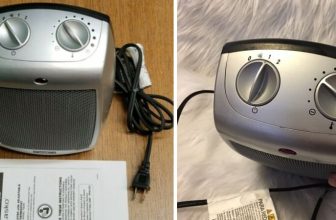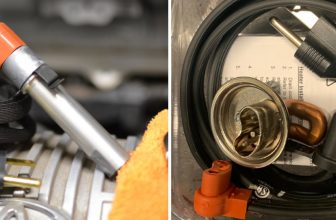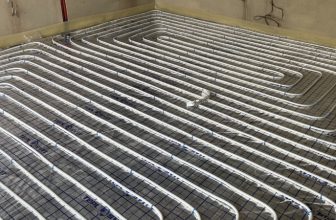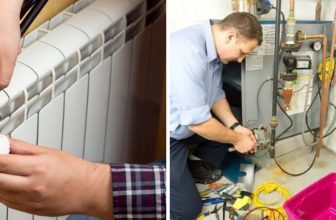How to Fix a Water Heater that Gurgles
Do you hear a strange gurgling sound coming from your water heater? It could be an indication that something is wrong and needs attention. Don’t worry—fixing this issue doesn’t necessarily require a replacement of the entire unit, but it might require you to take some steps to solve the problem.
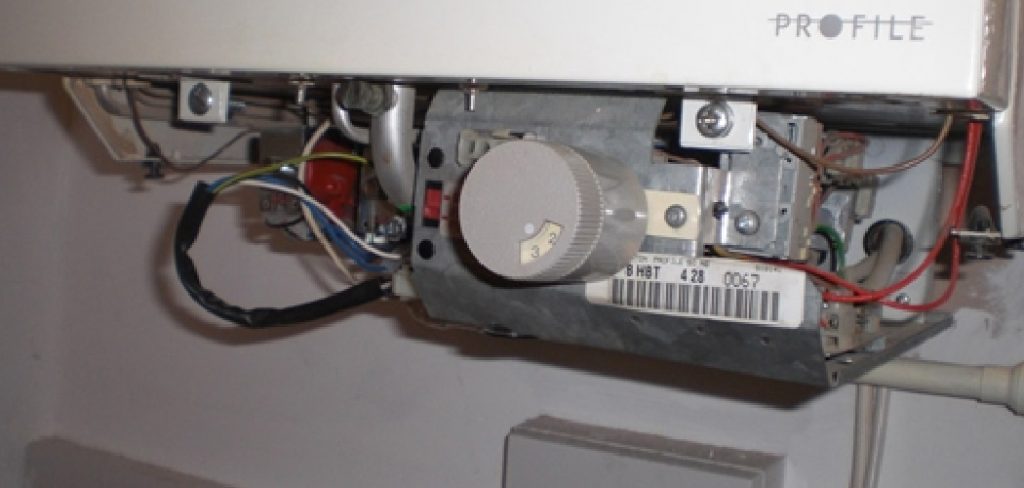
In this blog post, we walk you through how to fix a water heater that gurgles so that you can get your household running smoothly again with warm showers and clean dishes. Read on to learn more!
Why Does My Hot Water Heater Make a Gurgling Sound?
The most common cause of a hot water heater making a gurgling sound is air trapped in the tank. As water is heated and rises, it pushes out some of the remaining air pockets in the tank. When this process occurs repeatedly, it can create an unpleasant gurgling noise.
Another potential cause of a gurgling hot water heater is a build-up of sediment in the tank. Sediment can be caused by excessive minerals in your water supply and if left unchecked, it can gather at the bottom of the tank and cause issues with operation.
Thankfully, most gurgling issues with hot water heaters can be resolved without having to call an expensive repair person out to your home. The first step is to try and reduce the air in the tank by draining a little bit of water out of it. This can be done from the drain valve at the bottom of the water heater and should help alleviate some of the trapped air that could potentially be causing gurgling sounds.
The next possible cause of why your hot water heater is gurgling is sediment. If you’ve noticed that your hot water isn’t lasting as long as it should, then chances are there may be a build-up of sediment in the tank which could be causing some issues with operation. To fix this, you’ll need to flush the hot water heater. This process involves turning off the power to the heater and allowing all of the water to drain out of the tank. Once complete, use a garden hose to flush out any remaining sediment and debris in the tank. After flushing, you can then refill the tank with clean water and turn the power back on.
10 Methods How to Fix a Water Heater that Gurgles
1. Check the Water Heater’s Anode Rod.
The anode rod is a metal rod that is located inside the water heater. Its purpose is to protect the water heater from corrosion. Over time, the anode rod can become corroded, which can cause the water heater to gurgle. If the anode rod is corroded, it will need to be replaced. However, if it is not corroded, you should move on to the next step.
2. Check the Water Heater’s Temperature Setting.
If the water heater’s temperature setting is too low, it can cause the water heater to gurgle. The ideal temperature setting for a water heater is between 120 and 140 degrees Fahrenheit. To adjust the temperature setting, locate the thermostat on your water heater and turn it to a higher setting. Once you have turned up the thermostat, wait at least an hour for the water heater to heat up before testing it again. If adjusting the thermostat does not stop the gurgling, move on to the next step.
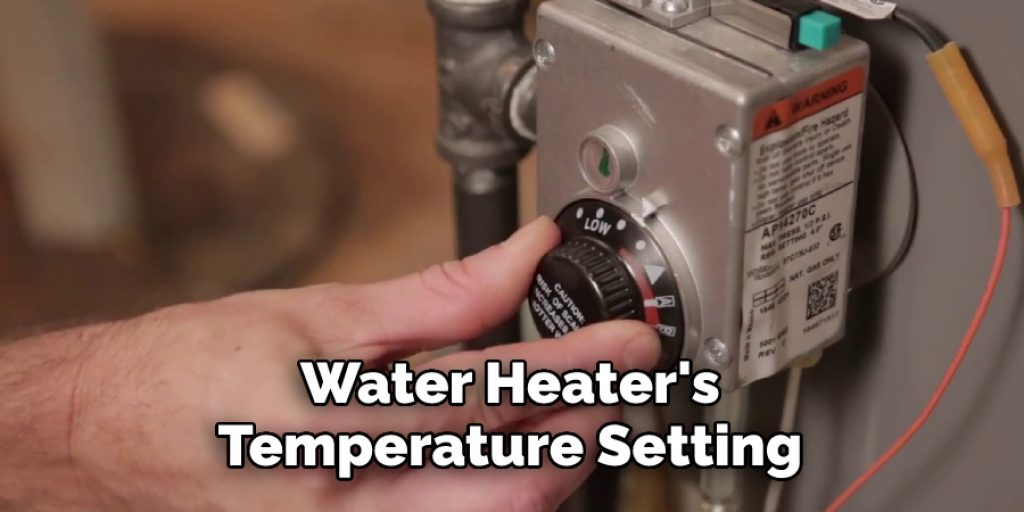
3. Check for Sediment Build-up in the Tank.
Sediment can build up in the bottom of the tank over time, which can cause the water heater to gurgle. To remove sediment build-up, flush the tank according to the manufacturer’s instructions. Start by turning off the power to the water heater, then open a hot water faucet in your home and attach a garden hose to the drain valve at the base of the tank.
Allow the water to run until it runs clear without any sediment, then turn off the faucet and disconnect the garden hose. Turn the power back on and check to see if the gurgling has stopped. If not, you may need to replace the water heater.
4. Check for Leaks in the Tank.
Leaks can also cause the water heater to gurgle. To check for leaks, inspect all of the fittings and connections on the tank for any signs of leakage. If you find any, tighten them or replace the O-rings if they are deteriorating. Also, inspect the tank itself for any signs of leakage. If you detect any leakage, you may need to replace the whole tank. If you’re unsure how to do this, call a plumber or handyman to help you out.
5. Have a Plumber Inspect the Venting System.
The venting system is responsible for removing fumes and gases from the water heater. If there are any blockages in the venting system, it can cause the water heater to gurgle. A plumber will be able to inspect the venting system and clear any blockages that may be present.
If necessary, they may also be able to replace any components of the venting system that are worn or damaged. If the issue with the water heater is due to a problem with the venting system, then this step should fix it.
6. Replace Damaged or Worn-Out Parts.
Over time, parts of the water heater can become damaged or worn out, which can also cause the water heater to gurgle. If any parts are damaged or worn out, they will need to be replaced by a qualified technician.
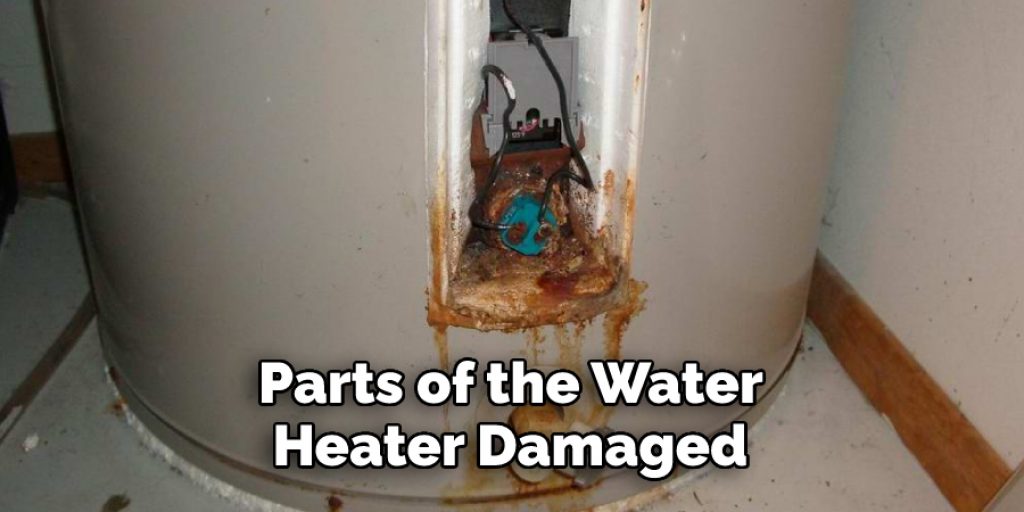
Common parts that might need to be replaced include the thermostat, thermocouple, and valves. The technician will also check for any water damage or corrosion at the same time. After replacing any damaged or worn-out parts, the water heater should be running more efficiently and without any gurgling noises.
7. Perform Routine Maintenance on the Water Heater.
Routine maintenance, such as flushing the tank and checking for leaks, can help to prevent gurgling and other problems with the water heater. Flushing the tank removes calcium and other minerals that can build up over time, reducing efficiency and leading to gurgling noises.
Checking for leaks is important to ensure that no water is wasted. If any leaks are found, they should be fixed immediately to prevent further damage. In addition, the anode rod should be checked at least once a year to ensure it is in good condition.
8. Check for a Blocked Expansion Tank.
The expansion tank is responsible for preventing the water pressure from becoming too high and damaging the plumbing system. If the expansion tank is blocked, it can cause the water heater to gurgle. A qualified technician will be able to inspect and unblock the expansion tank if necessary.
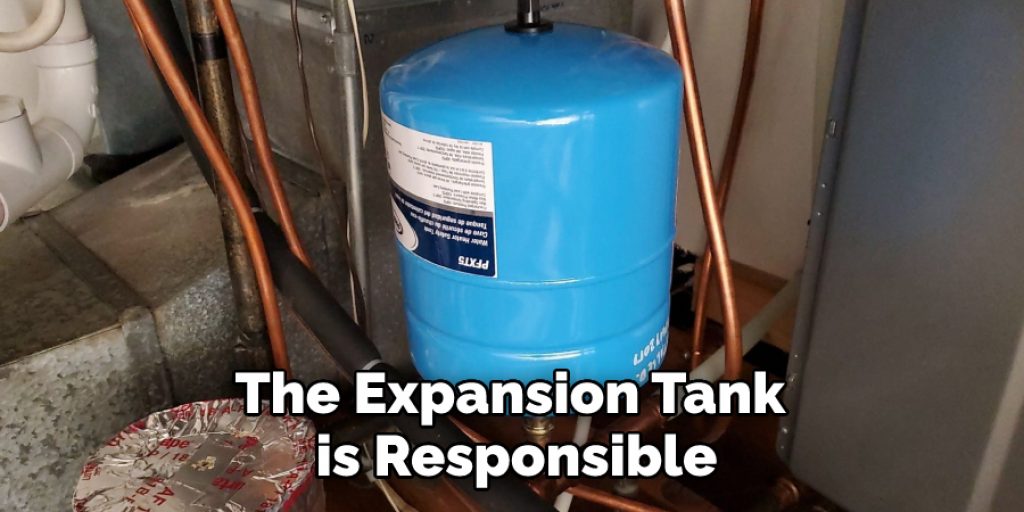
If the expansion tank is the cause of the gurgling, it should be replaced as soon as possible. However, if the expansion tank is in good condition, it may be necessary to check for other causes. Try to determine where the gurgling noise is coming from and check around that area to see if there are any blockages.
9. Install a Whole-House Water Softener System.
If your water has a lot of minerals in it, these can build up in the hot water heater and cause it to gurgle, as well as reduce its efficiency over time. Installing a whole-house water softener system can help prevent mineral buildup in the hot water heater and extend its life span.
If you have hard water, this is a great option that can save you money in the long run. Make sure to consult with an experienced plumber when installing a water softener system, as it can be complicated.
10. Replace the Hot Water Heater.
In some cases, the best option is simply to replace the hot water heater. This can be a costly solution, but it might be necessary if the unit is too old or corroded to be fixed. Replacing the hot water heater can also help improve its efficiency, which can lead to lower energy bills in the long run. Make sure to consult with an experienced plumber when replacing your hot water heater so that it is installed correctly and safely.
Things to Consioder When Fixing a Water Heater that Gurgles
1. Check the Temperature Setting:
Gurgling can indicate that the water heater is set too high, so be sure to check and adjust the temperature if needed.
2. Check for Air Bubbles in the Pipes:
Air bubbles can be generated by a buildup of sediment in the tank or pipes, which can cause gurgling noises. Check the pipes for any air bubbles and flush out the system if needed.
3. Inspect the Anode Rod:
The anode rod helps to protect the tank from corrosion, but it can deteriorate over time. If there is no visible defect in the anode rod, try replacing it to see if this resolves the gurgling.
4. Replace the Pressure Relief Valve:
A faulty or broken pressure relief valve can cause gurgling noises as well, so be sure to inspect and replace it if necessary.
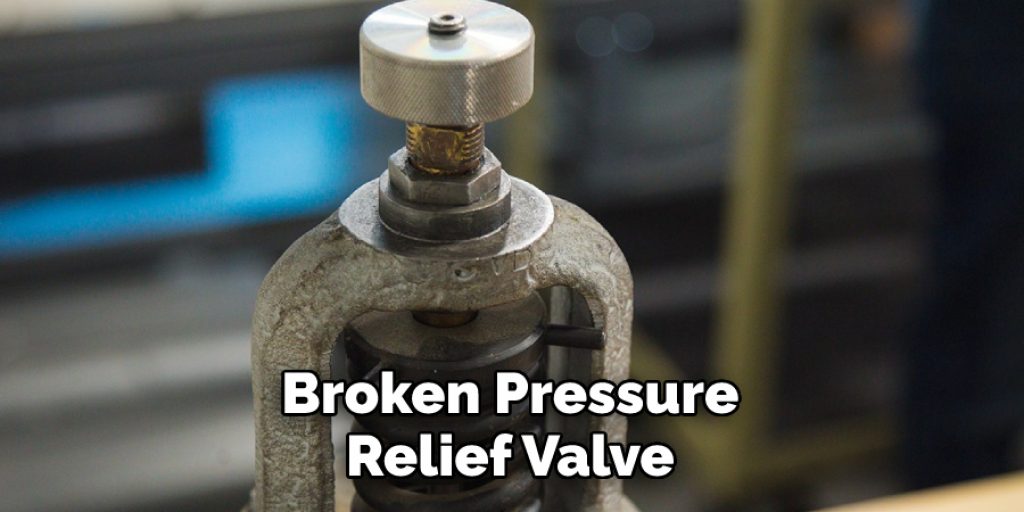
Conclusion
Is your water heater making a gurgling noise? Don’t panic! In most cases, this indicates that there is simply air in the tank. You can fix this problem yourself by following these simple steps on how to fix a water heater that gurgles. If you find that the gurgling persists or worsens after you follow these steps, then it’s time to call a professional. Don’t delay- a broken water heater can lead to serious flooding and damage in your home!

